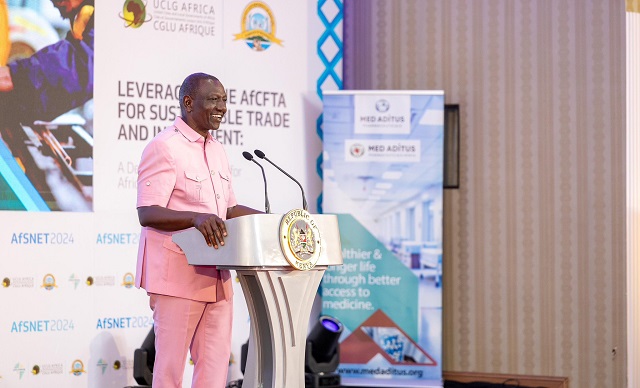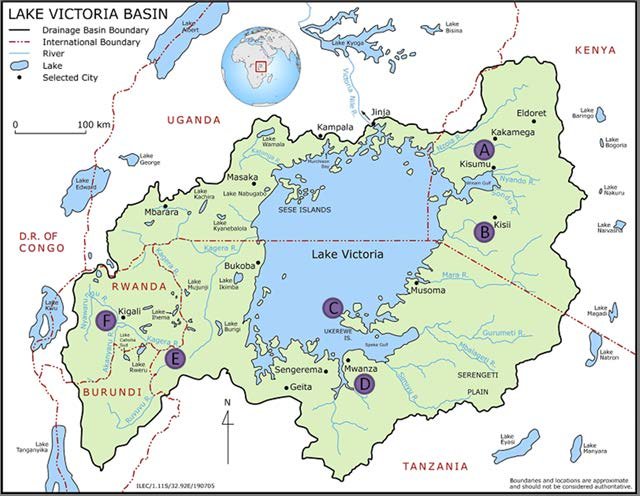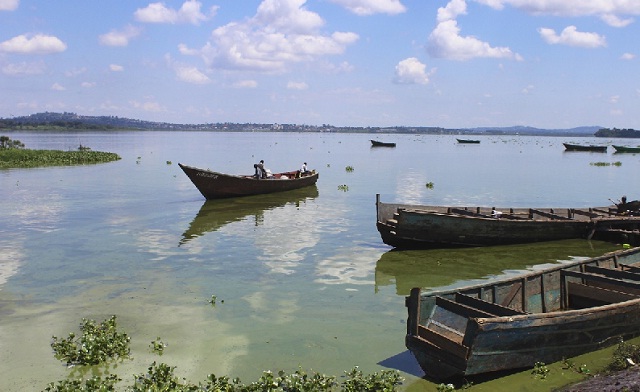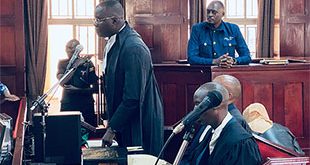
Kisumu ,Kenya | THE INDEPENDENT | Kenya’s President, William Ruto says it is shameful that countries in East Africa are importing fish from China yet Uganda, Kenya and Tanzania are endowed with the largest Lake in Africa.
Ruto says Lake Victoria, which is Africa’s largest lake by area, and the world’s largest tropical lake should be able to provide all the fish needed for consumption by its people and for export.
“It is a very big shame for us to import fish from Asia in the 21st century. Sixty years after our independence. That speaks volumes of the things we should not be doing,” said Ruto.
President Ruto made the remarks during the opening of the fourth edition of the African Sub-Sovereign Governments Network (AfSNET) Conference being hosted in Kisumu city.
Ruto promised to fast-track the completion of the 1.5 billion shillings Kabonyo Kanyagwal fish breeding facility located in Kisumu County as part of the efforts to provide communities around Lake Victoria with fish fingerlings.
“We have agree that we are putting up landing site in Asat and Ogal. The advert for the same is out. And we are going to spend three hundred million Kenya shillings to make sure that those facilities are available” Ruto said.
Though the project targets Kenyans, it is s expected that some of the technologies to be developed will benefit the fishing folks in Uganda particularly those on the Busia Uganda side of Lake Victoria and those in the islands. Kenya is promoting aquaculture as part of its blue economy.
The Kabonyo Fisheries Aquaculture Service and Training will facilitate training, research, innovation, and best practices in Fisheries and Aquaculture through demonstration, incubations and the development of a Nile Perch Technology and Innovation Centre, an Aquaculture Resource Centre, and the Kenya Fishing School.
Some studies have indicated that with growing population and urbanization, the East Africa region is facing a supply gap of one million metric tonnes of fish per annum.
Others indicate that the aquaculture industry supplies meet a mere 3% of the deficit. In 2019, the East Africa Community Lake Victoria Fisheries Organisation said some of fishery and aquaculture products that are traded among the EAC countries were being imported.

Among those included frozen whole gutted tilapia, mackerel, rabbit fish, reef cod; canned fish (tunas, sardines, mackerel, anchovy); frozen fish (prawns, crams, crabs, lobsters, oysters, squids, mussels and smoked salmon among others. These are imported from China, India, Vietnam, Yemen, Japan, Mauritius, Norway, Israel, Namibia, Taiwan, South Korea, Spain and Oman, among others.
In the EAC, fish and fishery products are the most traded commodities and are exported to more than 50 Countries with about 70% exported to the European Union President Ruto’s remarks followed concerns raised by the Governor of Kisumu Professor Peter Anyang’ Nyong’o about the state of marine transport and fishing on Lake Victoria.
Anyang’ Nyong’o suggested the need for support to improve marine transport on Lake Victoria. He said Lake Victoria is an important fact in the lives of people living in Kisumu and in communication between Kenya and East Africa particularly Kenya, Uganda and Tanzania.
“You remember when the East African Community collapsed, we suffered a big shock when the port in Kisumu collapsed with the East African Community. The only thing that survived was the railway workshop in Kisumu where the equipment endured the test of the time,” he said. Kenya’s former President, Uhuru Kenyatta made efforts to revive the port as part of the ambitions to improve marine transport and communication in Kenya, Uganda and Tanzania.
“We excavated using Kenya Shipyard Company and Kenya Ports Authority a lot of vessels which had sunk to the bottom of the lake. One of them was a big ship. Save for the software, most of it survived” he said “When it was brought to the shore, Kenya Shipyard Company was capable of reviving it to sail on the lake as MV Uhuru One,” he added.
Need for Fiber made boats on Lake Victoria
He reported that many lives are being lost on the Kenyan and Ugandan sides of Lake Victoria because the fishing folks and travelers using substandard boats and canoes.
“Appeal to you Your Excellency to ensure that trade on the lake especially by our small fishermen should be supported,” he pleaded.
He said Lake Victoria Commission, an entity of the East African Community estimates that Kenya, Uganda and Tanzania lose about 5700 fishermen dies on the Lake because they fish in boats made out of soft wood.
“This is why Kenya Shipyard Company become very important in making boats for our fishermen to save lives but also to ensure that the fishing industry survives” said Anyango Nyong’o whose city is hosting the African Sub-Sovereign Governments Network (AfSNET) Conference.
The Conference under the theme ‘Leveraging the AfCFTA for Sustainable Trade and Investment: A Development Pathway for African Sub-Sovereigns.’ Is aimed at promoting trade at a local level. One of the key objectives of the conference is to foster greater collaboration in promoting trade, development and investment initiatives among African sub-sovereigns, aligned with AfCFTA’s goals.

Afreximbank partnered with the Forum of Regions of Africa (FORAF), an organ of the UCLG Africa under the AfSNET initiative to ensure its products and interventions for trade and investment promotion are accessible both at the local and sub-sovereign level. This resulted in the announcement of US$ 2 billion in financing to tackle the pressing financing challenges faced by sub-sovereigns and businesses.”
While inviting delegates to participate in the forum, Kisumu County Governor, Prof. Peter Anyang’ Nyong’osaid “Africa’s economic renaissance is hinged on unbridling the developmental capacity of local governments and increasing decentralization. Despite the gains made in decentralization in recent decades, African local governments still have low administrative and fiscal capacity to realize the much-needed local economic development.
AfSNET, an innovative tool of the Afreximbank, therefore comes in handy to bridge that gap and allow sub sovereigns to accelerate and improve the quality of economic growth in Africa.
Its vision aligns with the aspirations of the African Sub Sovereigns umbrella organisation UCLG Africa to support decentralised governments access and participation in continental and international financial markets while also supporting the development of their fiscal capacities.” he said
Jean Pierre Elong Mbassi, Secretary General, United Cities and Local Governments of Africa while outlining UCLG’s mandate remarked: “Among the mandates of UCLG Africa is to assist its members to attract investments in sub-national and local governments so as to improve the living conditions of the populations, economic activities and businesses established within their territories.
UCLG Africa supports its members in adopting local economic development policies and strategies that investment plans derive from, and that gives impetus to public and private business development.”
The inaugural AfSNET conference, held in Durban, South Africa, on the margins of the second Intra-African Trade Fair (IATF2021) in 2021, attracted more than 80 delegates while the second, organised in collaboration with the Nigeria Governors’ Forum in Abuja in September 2022, drew more than 150 delegates.
The third conference, co-hosted with UCLG Africa in November 2023 on the sidelines IATF2023 in Cairo, had more than 250 participants and resulted in deals valued at more than USD$1.5 billion being signed. AfSNET was established by Afreximbank as a platform for promoting intra-African trade and investment, educational and cultural exchanges and the fostering of effective engagement among sub-sovereigns in Africa’s development and prosperity in the context of the AfCFTA.
*****
URN
 The Independent Uganda: You get the Truth we Pay the Price
The Independent Uganda: You get the Truth we Pay the Price



